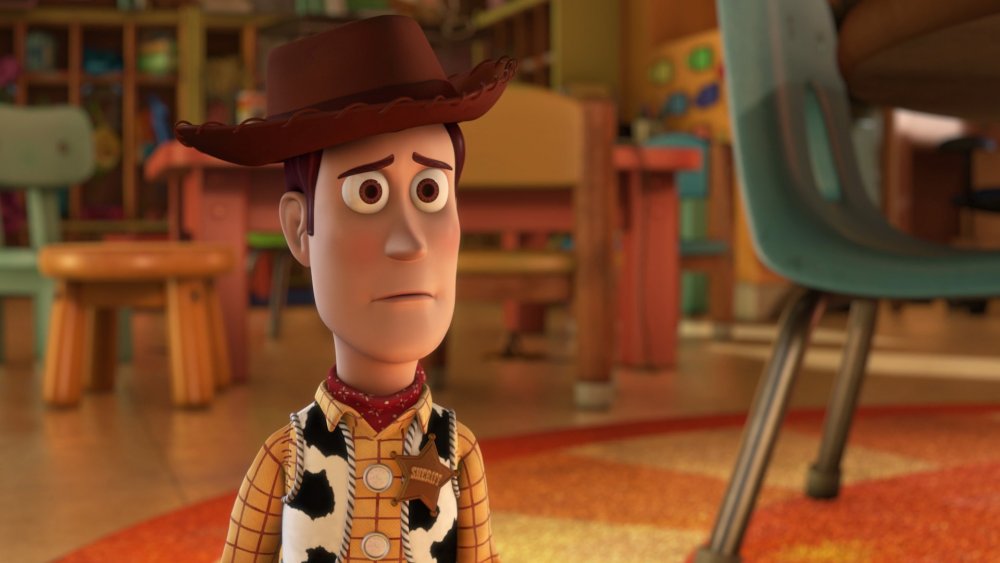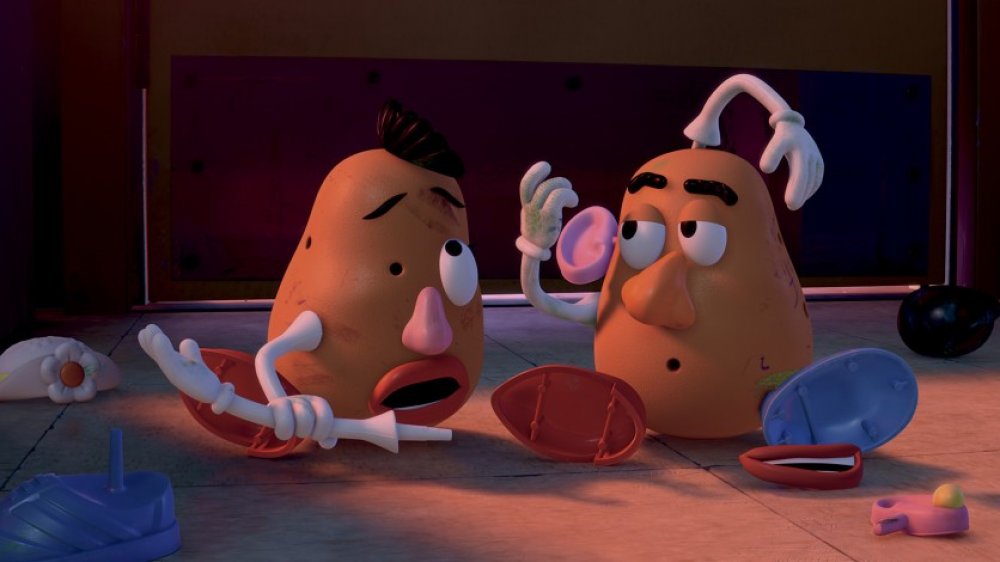Pixar Director Confirms Sad News About Toy Story Toys
Sometimes ignorance really is bliss.
One of the great metaphysical questions of the Toy Story universe has finally been answered, and it turns out we might have all been better off without this particular bit of truth. Not only are the sentient toys of the hit Pixar franchise biologically alive, but they can actually expire. That's right: Contrary to popular belief, Toy Story toys are not immortal by some incontrovertible law of toy magic; Toy Story toys can die.
Toy Story 3 director Lee Unkrich took to Twitter to settle this particular line of philosophical inquiry. According to his expert analysis, the lifespan of a toy may extend indefinitely for as long as the toy exists, but in the event of some kind of massive trauma, the toy is officially dead no matter how you try to slice it (via MovieWeb).
"They live as long as they exist," Unkrich tweeted. "But if they were to be utterly destroyed? Say, in an incinerator? Game over."
At this point in the popular series' long life, it might seem academic to debate the nature of toy life and death, but Unkrich's answer actually has real implications for the dramatic stakes in the first four films, and any future entries or adaptations yet to come.
Unkrich raises the stakes in the Toy Story universe
As Toy Story 4 demonstrated, the existential rules that govern the sentience of living toys are centrally at issue in the film series' long narrative arc. The introduction of Forky (voiced by Tony Hale) clearly proved that life can be imbued in any object once it assumes an essential toy-nature. Forky was a piece of garbage before Bonnie (Madeleine McGraw) plucked him out of refuse bin and stuck him with a few anthropomorphic features. Once she started playing with Forky, his essential toy-nature emerged, thus bringing him to life.
Here's where things seem to get complicated. Toy Story toys apparently retain this sentience even in the absence of a child's focused devotion. In other words, a child can bring a toy to life by playing with it, but that same child's negligence cannot rescind the gift of sentience. The toy life becomes its own independent entity, which continues to exist in the radical absence of human affection — a scenario that we've seen play out with disastrous consequences time and time again. This disconnect has always begged the question among philosophically curious fans: Once imbued with life, is a toy essentially immortal?
The question hung out there for years in the Disney-Pixar ether, and Unkrich's answer does appear to leave some room for debate. Sure, an incident of serious trauma that destroys the integrity of the physical toy could be deemed a "death" of sorts, but is there any way to remove the essential toy-nature from an object, relegating it to inanimate status? If Bonnie plucked the eyes off of Forky and tossed him back in the trash, would the essential trash-nature supersede the essential toy-nature required for sentience? Big questions, and incomplete answers.
Even if we don't quite have a satisfactory answer to the philosophical question at hand, there are still important narrative ramifications for Unkrich's tweet. Now that we know for sure that toys can be destroyed, it adds a whole new layer of threat to their daring adventures.

